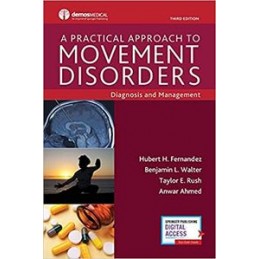- Reduced price

Order to parcel locker

easy pay


 Delivery policy
Delivery policy
Choose Paczkomat Inpost, Orlen Paczka, DHL, DPD or Poczta Polska. Click for more details
 Security policy
Security policy
Pay with a quick bank transfer, payment card or cash on delivery. Click for more details
 Return policy
Return policy
If you are a consumer, you can return the goods within 14 days. Click for more details
The book is organized by medical, behavioral, surgical, and non-pharmacological treatment approaches to movement disorders. Opening chapters walk the practitioner through clinical presentation, diagnosis, and work-up of common and uncommon disorders, sleep-related movement disorders, eye and vestibular function, including pediatric issues. Behavioral and psychiatric complications for Parkinson disease, Huntington disease, and Tourette syndrome follow, with a fully reconfigured chapter on functional movement disorders, incorporating changes in classification and treatment approach. Expanded chapters on surgical devices and indications address deep brain stimulation surgery; lesioning, shunts, and pumps; post-operative care; and neuropsychological, social, and ethical issues. The final section on non-pharmacological approaches covers physical and occupational therapy, speech and swallowing therapy, nutrition, and palliative care.
Key Features::
Data sheet
